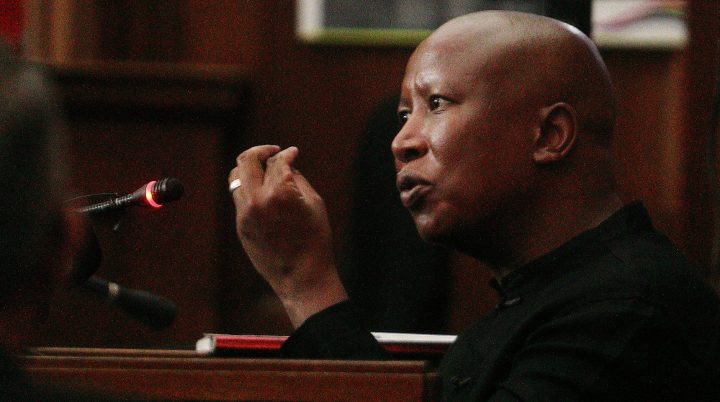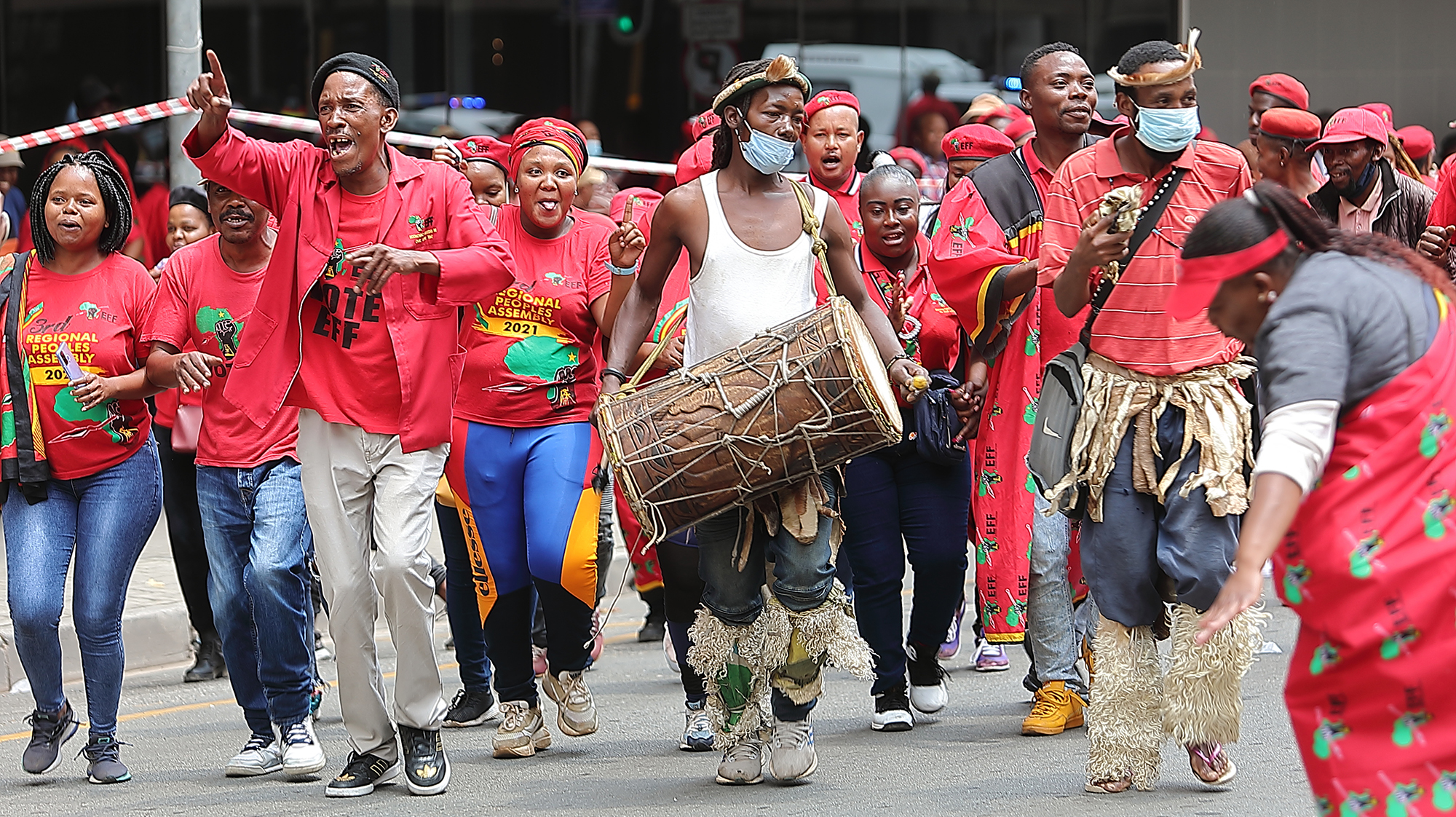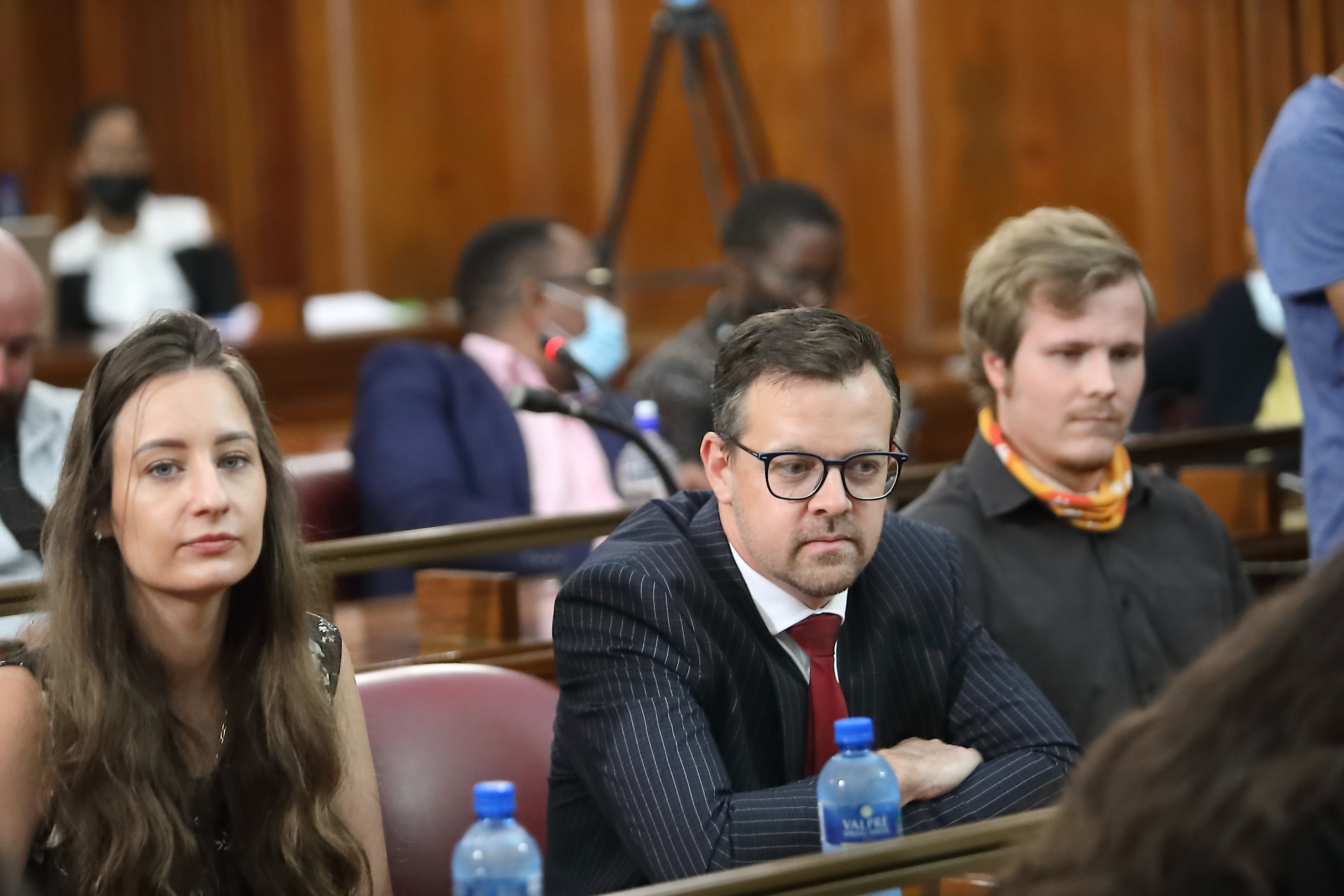LEGAL BLUNDER OP-ED
AfriForum should consider introspection after losing ‘Kill the Boer’ hate speech case against EFF

Predictably, the judgment of the Gauteng Division of the Equality Court handed down last week, dismissing an application by AfriForum to declare that the words of the song Kiss/Kill the Boer constituted hate speech — and to interdict Julius Malema and the Economic Freedom Fighters from singing the song at any private or public meeting — was met with loud cheers, but also with howls of outrage.
As most South Africans (including, it seems, quite a few lawyers and judges) lack a proper understanding of the applicable law — and as most of the people who expressed an opinion about the judgment had not read it — much of what has been said and written about the outcome of the case is spectacularly uninformed or just plain wrong.
To understand why, it is important to know that AfriForum lodged a complaint against Julius Malema and the EFF in October 2020 after their supporters sang “Kill the Boer, Kill the farmer” outside the Magistrates’ Court in Senekal, where the accused murderers of farm manager Brendin Horner were being tried.
AfriForum chose not to lodge a complaint against the EFF supporters who sang the song, instead targeting the lyrics of the song and more broadly Malema, Mbuyiseni Ndlozi and the EFF as an organisation. For reasons explained below, this decision was a spectacular legal blunder which, in effect, torpedoed AfriForum’s case.

Economic Freedom Fighters (EFF) supporters protest outside the equality court in Johannesburg on 16 February 2022. (Photo: Gallo Images / Fani MahuntsI)
Leaving aside the possibility of lawyer incompetence, the decision might make financial sense. AfriForum is a membership-based organisation that charges its members a monthly fee. It aggressively markets itself to conservative white Afrikaners and says it has more than 300,000 fee-paying members. It also solicits donations from the public for specific campaigns, including a legal fund, which it says on its website “allows us to take people like Julius Malema and the EFF to court”. Targeting Malema and the EFF is therefore a good marketing strategy.
Moreover, playing on the racial fears of a sizeable portion of white South Africans, AfriForum has long claimed that a disproportionate number of farmers (by which it means white farmers) are killed in so-called farm murders (a claim that is widely disputed), and that the singing of the impugned song contributes to the political climate in which particularly white Afrikaans farmers are being targeted and often brutally murdered in what may turn into the ethnic cleansing of white South Africans.
Deputy CEO of AfriForum, Ernst Roets, has also claimed in a book that the current government and the police are directly involved in the planning and execution of some of these attacks.
Disastrous legal strategy

Ernst Roets at the equality court in Johannesburg on 16 February 2022. (Photo: Gallo Images / Fani Mahuntsi)
AfriForum made these claims a central part of its case against Malema and the EFF, calling Roets as one of its expert witnesses to testify about farm murders. This made sense as a strategy to solidify AfriForum’s support among its members and potential members, but as a legal strategy, it turned out to be a disaster.
The court held that Roets could not be regarded as an expert witness, as expert witnesses needed to be impartial, which Roets was not, and discounted his testimony.
But this was not the only, or even the main, problem with the way in which AfriForum framed its case. Instead of focusing narrowly on one or two events where the song was sung and providing evidence and valid expert testimony as to its effect in these specific cases, it asked the court to declare that the lyrics of the song (and not its singing on a particular occasion by a particular person) constituted hate speech, as if context played no role in judging the impact of the song.
To understand why this was not a winning strategy, it is necessary to turn to the wording of the provision that prohibits hate speech as determined by the Constitutional Court in the Qwelane judgment, and that interpretation of the prohibition. In that case, the Constitutional Court determined that the prohibition should read that “no person may publish, propagate, advocate or communicate words that are based on one or more of the prohibited grounds, against any person, that could reasonably be construed to demonstrate a clear intention to be harmful or to incite harm and to promote or propagate hatred”.
The Constitutional Court held that the test for hate speech is objective in the sense that one should ask whether a reasonable person would have concluded that the person who communicated — the speaker — had the intention for the words to be harmful or to incite harm and to promote or propagate hatred, based on the race, gender, sexual orientation or other protected category.
Visit Daily Maverick’s home page for more news, analysis and investigations
The court stressed that the “facts and circumstances surrounding the expression, and not mere inferences or assumptions that are made by the targeted group”, should be considered. One should also consider the broader historical context, and the possible impact of “deeply rooted structural subordination” on the group targeted by the speech.
This means that the same song or phrase might constitute hate speech in one context but not in another. For example, it may well be that when angry and volatile EFF members sang “kill the boer” outside the Magistrates’ Court in Senekal, where the accused murderers of farm manager Brendin Horner was being tried, it constituted hate speech. But the same song might not constitute hate speech if it was sung by ANC veterans reminiscing about their struggle days.
A reasonable person would understand the history of the song, and would know that when it was sung during the anti-apartheid struggle, it was a call for the destruction of the apartheid regime and the apartheid police force.
Hate speech vs freedom of expression
Such a person would also understand that despite this history, it might well mean something different in 2022 when sung outside a courtroom in a volatile situation with armed white farmers squaring off against armed EFF supporters. By asking the court to declare the singing of the song hate speech, regardless of the place and context where it is sung, AfriForum’s case stopped being a hate speech case and became a case about the banning of a song, and thus a matter of freedom of expression.
I would therefore contend that the Equality Court came to the correct conclusion in this case.
Given the odious manner in which some EFF leaders and supporters harass, insult and bully anyone who disagrees with them, many people might not find the outcome satisfying, but I don’t think as a matter of law the case was wrongly decided.
That said, the judgment is not without its faults. The court correctly pointed out that AfriForum made the mistake of assuming the literal interpretation of the lyrics of the songs was the end of the matter. The court then continued:
“It is in the current political situation a song directed at articulating the failure of the current government in addressing the issues of economic power, land reform and distribution. As matters stand, in my view, the singing of the impugned song and its lyrics should be left to the political contestations and engagement on its message by the political role players. Accordingly, a reasonable listener, would conclude that the song does not constitute hate speech, but rather that it deserves to be protected under the rubric of freedom of speech.”
While this may well be true in some contexts, it may not be true in other contexts. The court thus misapplied the Qwelane test by assuming a song could only ever have one meaning, regardless of the facts or context within which it is sung.
What is lacking from the judgment is a more nuanced and subtle understanding of how meaning is made. The court also did not seem to consider the possibility that a song or a phrase can acquire many different and sometimes overlapping meanings, and that the meaning can shift over time, or when the context in which the words are uttered changes.
The court also concluded that AfriForum had “failed to show that the lyrics of the songs are based on prohibited grounds set out in the Equality Act”. In other words, it had failed to show that the song targeted people based on their race.
This is odd, given the fact that Malema claimed in his testimony to the court that he sang a version of the song with lyrics that changed “kill the boer” to “kiss the boer” in order “to provoke white supremacists who had declared it was immoral for a black person to kiss a white person”.
Lack of moral imagination
AfriForum and its lawyers also seemed to have been incapable of imagining that a song born during a time of struggle and largely sung in a language they did not understand, could have anything but a literal meaning.
This failure, I believe, shows a lack of moral imagination — an obliviousness to the experiences and histories of the majority of citizens with which they share a country, and a failure to consider the possibility that their particularly parochial, white, Afrikaans perspective (and the particular anger, fear and pain it caused) was not the only (or even the most) valid vantage point from which the meaning of a song (or of life) could be inferred.
The leaders and supporters of AfriForum might not want to hear this, but I worry that their failure to do the basic work required to begin to understand the many ways in which those who are not like them view and experience the world (a failure shared by too many other white South Africans), makes them part of the problem, not the solution.
While they might not seem to have much in common with the toxic bullies that lead and cheer on the EFF, they would have a better chance of winning court cases if they did some serious introspection about their ethical limitations. DM



















 Become an Insider
Become an Insider
An admirable summary of the flaws in Afriforum’s case and the lack of nuance in the judgment.
when I read the judgment I was astounded at the ineptitude of the plaintiffs and their legal team.
As was I Errol.
Thank you Pierre de Vos for clarity
Civil minded people would not sing this song, nor encourage the singing of this or any other inflammatory song that promotes hate or violence. South Africa will be a better place when the EFF and people like the ANC’s Pule Mabe, who also supports this song, become substantially more irrelevant in our society.
I look forward to the day this happens, hopefully at the date of the next elections.
Interesting read, and helpful in understanding context and legal strategy. But it raises as many new questions. At issue is what de Vos calls ‘ethical limitations’. At the heart of this is the question whether singing about the killing of a minority group has ‘any place’ in South African society in 2022. This framing arises often in the context of explaining why the old SA flag has no place in modern SA, or why using the k word has no place, and so on. The rush to absolutism is quick. It’s obvious what the Afriforum are arguing – singing about killing a group of people, defined by their race and history, is wrong in any context, at any time. De Vos himself does not defend the waving of the old flag at a Afrikaner gathering to celebrate 300 years of their language say by citing the context argument. It would be good for the learned Prof to unpack what the limits are to context, and when an absolute ban can be justified. Killing of farmers is no joke, and the oft repeated ‘it’s just crime’ is obviously insufficient to explain it all, not least because in the case of other crimes against specific groups, GBV say, there are no politicians calling for it, or people singing about it. But with farmers there indeed is, and when context is considered by the people singing it, and what else Malema et al say, then Afriforum is surely making a point that needs more thoughtful discussion. I’m not sure that this reflects ‘ethical limitations’.
Thoughtful and well reasoned.. O to have more pause for thought rather than emotional knee kerks..
How is it that a song, which most ordinary people, not legal eagles, would interpret as overtly inciting and encouraging of violence can be allowed. How do the courts manage to twist things round so badly with their clever legalese. The history of the EFF is one of violence and hatemongering. Singing a song with words like “Kill the Boer” is a perfect example of this. Would a song encouraging the killing of Blacks, for instance, now also be acceptable? I can’t imagine that would fly and the EFF would be up in arms. We should be encouraging bridge-building between all the peoples of SA, not more violence.
Really!! This is a simple case of hate speech, no matter which way it gets spun legally!!
Substitute “boer” with “black famer” and what outcome would you expect in court?
Thanks Pierre, especially the last two paragraphs need to be highlighted if the people of this coubtry are ever to find and properly respect each other
“The Constitutional Court held that the test for hate speech is objective in the sense that one should ask whether a reasonable person would have concluded that the person who communicated — the speaker — had the intention for the words to be harmful or to incite harm and to promote or propagate hatred, based on the race, gender, sexual orientation or other protected category.”
Why is intent important for “hate speech” but not for incitement to violence?
From LexisNexus:
Acts or conduct which constitute an incitement to public violence.
“17. A person shall be deemed to have committed the common Acts or conduct law offence of incitement to public violence if, in any place whatever, he has acted or conducted himself in such a manner, or has spoken or published such words, that it might reasonably be expected that the natural and probable consequences of his act, conduct, speech or publication would, under the circumstances, be the commission of public violence by members of the public generally or by persons in whose presence the act or conduct took place or to whom the speech or publication was addressed.”
A particular aspect of this crime is that the accused’s actual intention is irrelevant, what is relevant is whether a reasonable person would expect public violence to be a probable consequence of his or her act. It is therefore an objective test, and as the meaning of incitement is not defined in the Act, it must be given its ordinary meaning as per Gardiner in R v Maxaulana [1953] 2 All SA 146 (E).
I love how much of law relies on a “reasonable person”. What is a reasonable person? A reasonable person from a traditional culture may find it okay to treat his wife like property, for example. I agree the case was weak, but perhaps Afriforum will try a different angle and succeed?